Iran Police Warn About Breaking Islamic Rules During Ramadan
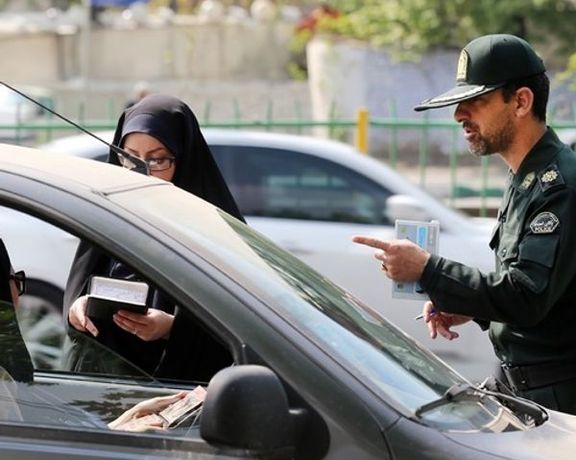
As the Holy Month of Ramadan starts, Iran's police have warned there will be strict punishments for those caught eating in public during fasting hours.

As the Holy Month of Ramadan starts, Iran's police have warned there will be strict punishments for those caught eating in public during fasting hours.
Every year police enforce a national plan to deal with those who break Ramadan rules in public, and transgressors are sometimes sentenced to months of detention and lashes, but in most cases they are released after a few days. Last year dozens of businesses were closed by the government for violating the rules.
Iran’s police command issued a statement on Wednesday warning there will be serious consequences including arrests and fines to people breaking "Islamic rules" and eating during fasting hours, especially in public spaces such as parks, gardens or vehicles.
The statement also warned hotel and restaurant managers, terminals, airports, and railway stations that they can provide services to passengers only "if they cover their space in such a way that it cannot be seen from the outside".
In addition to avoiding certain actions mentioned in the Qur'an, Muslims must abstain from food or drink of any kind from dawn to dusk, which will be about 14 hours in Iran this year.
The vocal warnings were met with criticism by Iranian lawmaker Mojtaba Tavangar, who criticized the "politicization of fasting" by regime officials.
Ramadan fasting began Thursday in Iran but a declining number of Iranians observe the traditional fasting period. As the population becomes more secular, less Iranians feel as committed to the rigid traditions of Islam, which the regime tries to impose on their lives.
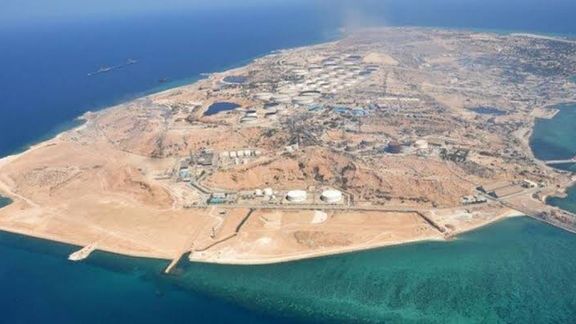
The Gulf Cooperation Council has reiterated its position on Iran’s “occupation” of three islands in the Persian Gulf which it claims belong to the United Arab Emirates.
The declaration was made once again by the foreign ministers of the six member states of the GCC, who claim the Greater Tunb, Lesser Tunb, and Abu Musa have been unlawfully occupied by the regime.
The Ministerial Council , which hosted high profile attendees including the de facto ruler of Saudi Arabia, Mohammed bin Salman, stressed support for the sovereignty of the United Arab Emirates over the three islands as an indivisible part of the territory of the United Arab Emirates.
In the meeting Wednesday, they further added that any practices or actions carried out by Iran on the three islands are “null, void and have no effect on the right of the sovereignty of the United Arab Emirates over its three islands”.
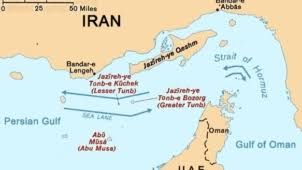
The Ministerial Council also called on Iran to respond to the efforts of the United Arab Emirates to resolve the issue through direct negotiations or resorting to the International Court of Justice.
The three islands have been in dispute since the British withdrew their armed forces in 1971 and Mohammad Reza Shah sent the Iranian navy to secure all three.
Iranian forces remain on the islands, with only Abu Musa having a civilian population which is less than two thousand.
The Council welcomed the agreement reached between Saudi Arabia and Iran in Beijing at the initiative of the Chinese President Xi Jinping, which it also hopes can pave the way for talks over Iran’s nuclear enrichment, a shared concern for all GCC states.
“[We] hope this agreement would constitute a positive step for resolving differences and ending all regional conflicts through dialogue and diplomatic means and establishing relations between countries on the basis of understanding, mutual respect, and good neighborliness,” read the statement.
After seven years of soured political relations, Iran and Sadi Arabia signed a deal earlier this month brokered by China to resume times and open embassies in the respective capitals.
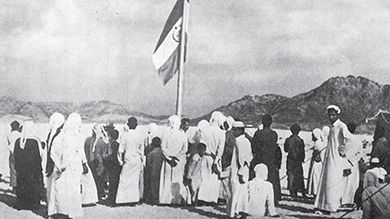
However, the continued activity of Iran’s proxy militia, the Houthi rebels, is proving a contentious issue as they show no signs of abating action in Yemen.
The Council reiterated its calls on the Houthis to negotiate under the supervision of the UN to reach a political solution.
The Ministerial Council further condemned Iran's continued “foreign interference in the internal affairs of Yemen, sending military experts and weapons to the Houthi terrorist militia in clear violation of Security Council Resolutions”.
Iran’s Foreign Ministry Spokesman Nasser Kanaani slammed the comments about the occupied islands and stressed Thursday that they are an integral and eternal part of the territory of the Islamic Republic of Iran.
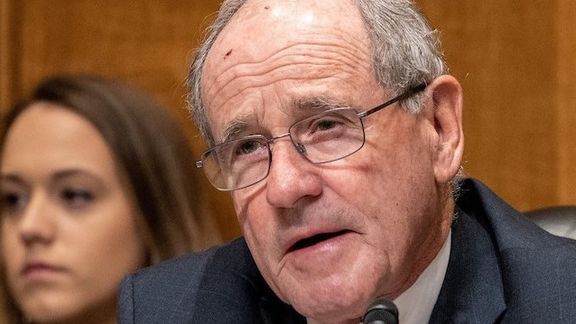
A group of US Republican senators has urged the European Union to designate Iran's Islamic Revolutionary Guard Corps (IRGC) a terrorist organization.
In a letter to EU Foreign Policy Chief Josep Borrell on Wednesday, 12 Republican senators led by James Risch (R., Idaho) said: "The IRGC clearly presents a threat to the EU and our collective security."
They further added that "it is long past time to cut off its resources before the next tragedy strikes", referring to attacks the organization has committed overseas, including the high profile attempted murder of author Salman Rushdie during a speaking engagement in the US.
The regime vehemently denies responsibility though said Rushdie had crossed a "red line" against Islam, tacitly approving of the incident which left him with life changing injuries.
According to a copy of the letter exclusively obtained by the Washington Free Beacon, Republicans say an EU "designation will cripple the IRGC's ability to promote terrorism and will make the world safer for Americans and Europeans alike".
The European Parliament overwhelmingly passed a resolution on January 19 calling on the EU and member states to designate the IRGC, however, several states including Germany fear designation will close the window of diplomacy regarding Iran's nuclear program may be closed.
The United States designated the IRGC as a global terrorist organization in 2019. It has carried out multiple cyber attacks and threats to the lives of Iranians abroad, including staff at Iran International based in the UK.
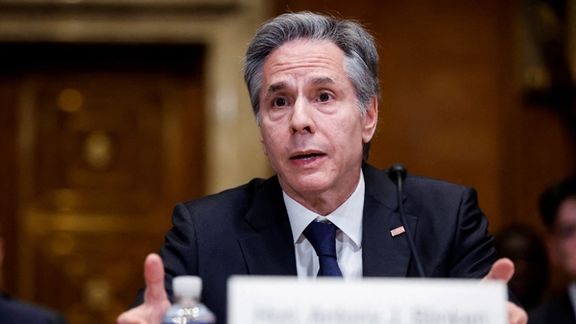
Pressure is mounting on the Biden administration to take harsher action on Iran as senators claim Iran’s oil wealth is helping fund Russia’s war on Ukraine.
At a review of the 2024 State Department Budget Request on Wednesday, Republican Senator Ted Cruz called the Biden administration “weak”, claiming its weakness on Iran is indirectly supporting Russia’s war efforts, in addition to boosting its nuclear capacity.
In a scathing attack, Cruz told Secretary of State Antony Blinken a walking back of the previous administration’s oil sanctions on Iran has led to empowering the regime's nuclear program and helped it support Russia’s military capacity through drone sales.
“I'm deeply concerned, however, that no matter how much you may want to help Ukraine there is something the Biden administration wants more, which is to re-enter a nuclear agreement with Iran,” he said.
“This administration has shown weakness on Iran since day one, and continues to do so. Just in the last few weeks there have been reports that you again waived congressional sanctions to allow Iraq to move money to the Central Bank of Iran, which the Ayatollah uses for terrorism, for ballistic missile development, and nuclear weapons work.”
The outspoken Senator went on to discuss the oil revenues which Iran is capitalizing on in addition to claiming that Russia’s use of Iranian oil tankers violates US energy sanctions.
“You've allowed that ghost fleet to grow dramatically,” Cruz said, claiming the number of tankers Iran was using at the start of the administration has risen from 70 to 300.
“The administration [has] allowed Iran to restore its energy exports, getting above one million barrels a day, which is funding the regime and funding the war on Ukraine.”
Last month was the highest oil exports Iran has had since 2018, not only great news for a beleaguered Iranian economy, but a boost to Russia which is now using an enormous Iranian fleet to bypass international sanctions.
Iranian oil exports started hitting new highs in the last two months of 2022 despite US sanctions, with higher shipments to China and Venezuela, countries bypassing international sanctions.
Tehran's oil exports were limited under former President Donald Trump when in 2018 he exited a 2015 nuclear accord and reimposed sanctions aimed at curbing oil exports and the associated revenue to Iran's government.
However, exports have risen during the term of his successor President Joe Biden, who had sought to revive the nuclear deal, and hit the highest since 2019 on some estimates. This comes despite headwinds such as a stall in those talks and competition from discounted Russian crude.
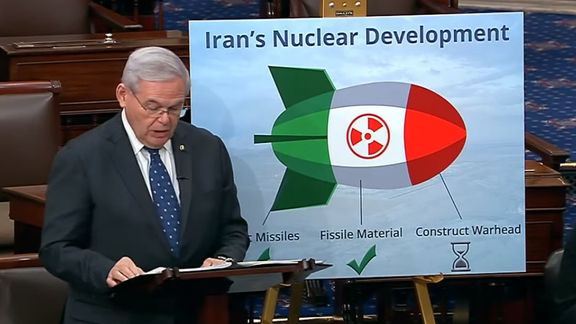
Energy consultant SVB International said Iran's crude exports in December averaged 1.137 million barrels per day, up 42,000 bpd from November and the highest 2022 figure SVB has reported based on estimates given earlier.
Blinken sheepishly defended the administration’s position, standing by the desire to return to the nuclear deal, known as JCPOA, talks which broke down last year after Iranian intransigence.
He said the US is “actively and aggressively working to break up” the alliance between Russia and Iran, claiming there are moves underway to reimpose the oil sanctions. Though the administration has imposed sanctions across Iran’s UAV network, which it is supplying to Russia for its invasion on Ukraine, a position the regime firmly denies, it is no nearer quelling the million barrels of oil Iran is selling which in turn, funds its global network of terror.
“We’re working every day to enforce the existing sanctions on Iran even as we're looking at imposing new ones,” said Blinken, though Cruz refuted the claims, accusing him of it being a simple political decision not to enforce the oil sanctions.
Russia’s support for Iran’s nuclear program was also a major point of contention, Cruz citing President Vladimir Zolensky’s claims that Russia is compensating Iran for weapons through nuclear cooperation. “Under this administration, you have allowed Iran to get to the brink of a nuclear weapon,” Cruz blasted, while Blinken blamed the failure of nuclear talks on Iran’s pulling out.
Senator Bob Menendez (D-NJ), Chair of the Senate Foreign Relations Committee, signaled the exasperation felt among Republicans and some Democrats at the lack of action from the Democrat administration to curb Iran’s growth. Rather than calling on a return to the JCPOA, the sentiment is that the moment has long passed.
“The Europeans have not joined us in multilateralizing our sanctions which at this time to Iran would have a huge consequence,” Menendez said. “It's time to come to the conclusion that we want Iran to move in a different course, so others have to join us as well.”
His sentiments were echoed by Senator James E. Risch, who, with Menendez, recently met with the International Atomic Energy Agency to discuss the matter of Iran.
Concurring, Risch added: “We need to encourage our European allies to join us in what we're trying to do as far as Iran is concerned.”
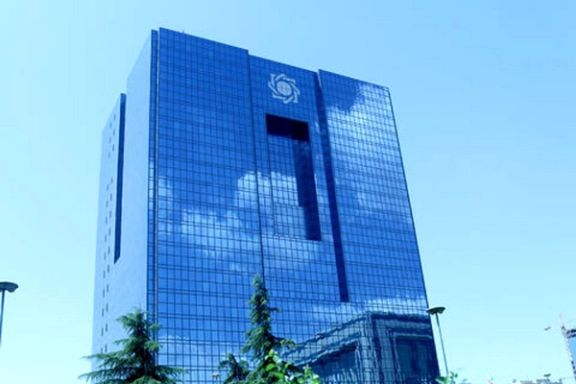
A federal judge in New York ordered Iran's central bank and a European intermediary to pay out $1.68 billion to family members of troops killed in the 1983 bombing of the US Marine Corps barracks in Lebanon.
US District Judge Loretta Preska said a 2019 federal law stripped Bank Markazi, the Iran central bank, of sovereign immunity from the lawsuit, which sought to enforce a judgment against Iran for providing material support to the attackers.
The lawsuit also names Luxembourg-based Clearstream Banking SA, which is holding the assets in a client account. Clearstream parent company Deutsche Boerse AG DB1Gn.DE said on Wednesday that it is considering appealing against the decision.
Clearstream will "weigh all relevant interests and responsibilities" and comply with its legal and regulatory obligations in handling the funds, Deutsche Boerse said.
The Oct. 23, 1983, bombing at the Marine Corps barracks killed 241 US service members.
Victims and their families won a $2.65 billion judgment against Iran in federal court in 2007 over the attack.
Six years later, they sought to seize bond proceeds allegedly owned by Bank Markazi and processed by Clearstream to partially satisfy the court judgment.
Bank Markazi has argued that the lawsuit was not allowed under the Foreign Sovereign Immunities Act (FSIA), which generally shields foreign governments from liability in US courts.
In January 2020, the US Supreme Court overturned a lower court ruling in the families' favor, and ordered the case to be reconsidered in light of a new law, adopted a month earlier as part of the National Defense Authorization Act.
Preska said the 2019 law authorizes US courts to allow the seizure of assets held outside the country to satisfy judgments against Iran in terrorism cases, "notwithstanding" other laws such as FSIA that would grant immunity.
A Luxembourg court in 2021 ordered Clearstream not to move the funds until a court in that country recognizes the US ruling. Clearstream has appealed that decision.
Reporting by Reuters
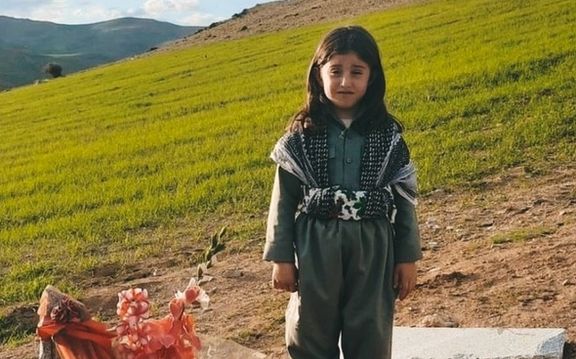
Many families of protesters fallen during the recent anti-government protests marked the New Year (Nowruz) at the side of the graves of their loved ones this year.
“My son was a hero. He was martyred for his country … Unity is the key to our victory,” said Zhila Khakpour in an Instagram post taken at the side of her son’s grave at Tehran’s Behesht-e Zahra cemetery on Thursday.
Zhila’s 25-year-old son, Ali Seyedi, was shot dead by security forces at a protest rally in Parand, a town 30km to the south of the capital Tehran, on November 4. In the video she posted, she felicitated Iranians for the coming of the new Iranian year and thanked them for supporting the family during their ordeal.
Jila Khakpour at her son’s grave vowing to avenge his killing.
“Everyone says they will avenge you. God willing, we will avenge the bloods of all of you. My darling, I will never let your blood to be trampled on,” she says sitting next to the grave and caressing the image of her son engraved on the stone.
Iranians usually visit the graves of their loved ones on the last Thursday of the year. They wash the graves, adorn it with flowers and candles, and distribute sweets and fruits to those visiting the cemetery but this year the visits have continued into the holiday season with people chanting anti-government slogans and vowing to take revenge in several cases.
Local people and family marking the New Year at Mahsa Amini’s grave.
Hours before the turn of the year, a large crowd gathered at the grave of Mahsa (Jina) Amini in Saqqez in northwestern Iran. The twenty-two-year-old’s death in the custody of the morality police on September 16 sparked a wave of protests across the country that lasted for months.
Videos posted on social media show participants in the ceremony bearing torches and flowers to her grave, singing Kurdish mourning songs and stamping their feet.
People chanting “Down with the Dictator” at the grave of young chef, Mehrshad Shahidi in Arak
In photos widely shared on social media, a little girl Bavan is seen standing at her mother’s grave in Mahabad at Nowruz. The young woman, Fereshteh Ahmadi, was shot in Mahabad on the roof of her house while watching the protests with her little girl. Her grave, like many others in Kurdish areas of Iran, is draped in red tulle and is adorned with red flowers to show that she was martyred.
Some other photos posted on social media show the friends and classmates of the ten-year-old Kian Pourfalak at the side of his grave thousands of kilometers away, in Izeh in southwest Iran, shortly before the turn of the year Monday.
Kian was shot by plainclothesmen in the family car in November during a night of protests in Izeh. His father, Meysam Pirfalk has been confined to a wheelchair after months of hospitalization and several surgeries but his mother, Zeynab Molaei-Rad and his three-year-old brother Radin were unharmed in the attack.
People in Izeh chanting against Khamenei and IRGC at the grave of Kian Pourfalak before the turn of the year.
The government has arrested several citizens it accuses of “terrorism” for the shooting, but Zeynab insists it was the security forces that killed her son. In a fiery speech at her son’s burial, she said she had no doubt about who had shot her family and implicitly accused Supreme Leader Ali Khamenei of responsibility for her young son’s killing.
There were dozens of children and teenagers among the over 500 killed during the protests across Iran, either as protesters or bystanders. The deaths of the children caused protesters to dub the regime as “child-killer”.